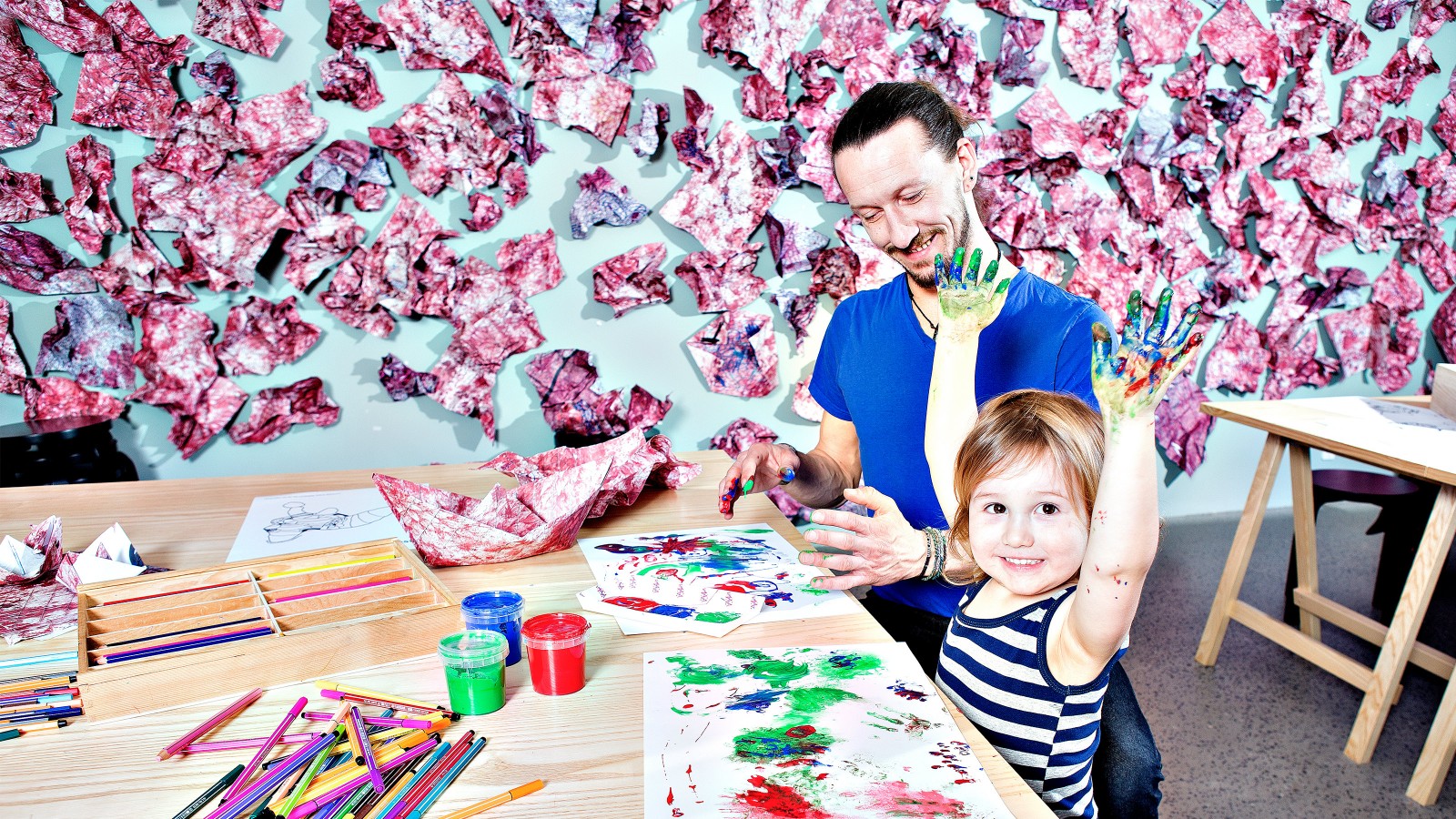
Kunstlab is one of two educational rooms at Kunsten Museum of Modern Art in Aalborg. It is a screen-free, analogue environment for experiencing art as a counterweight to the ubiquity of the digital in contemporary teaching. Kunstlab is staged with the colours, themes and other elements that visitors will encounter in the exhibition space of the featured exhibition. Kunstlab thus functions as a form of portal into the world of the featured artist or exhibition that visitors will encounter and is the first stage of the process of immersion in the artworks.
This sensory, embodied approach is accompanied by a workshops that employ a highly experimental use of materials and techniques, which lean up against the featured artists, but do not result in a slavish copying or imitation of their styles. Visitors thus have the opportunity to reflect on incredibly strange and experimental artists and views of the world. This serves as a confirmation that it is okay to think differently and to challenge norms and worldviews. They are encouraged to engage with materials in an open and experimental way, which has applications in all kinds of other fields, where experimenting with new applications for materials is a vital innovative tool in sustainability. Focus on process rather than product means that users often go home without something they have made themselves, but either leave behind a product for the next guest or group to visit the museum, take home something left for them, contribute to an installation created by guests to the museum, or all of the above. This results in curiosity about the guests who have left them something and about the person who will receive their “gift” and a sense inclusion and ownership through the communal artwork.
The willingness to give up ownership of one’s own product can be challenging for some children, but is an important lesson in the reciprocity of giving and receiving gifts and the generosity that lies at the heart of the existence of Kunsten and most other museums, where private collectors donate individual items or whole collections, thereby creating the existential foundation of the museum. Reciprocity is an important element of the exchange and the thrill of receiving a gift (a hand-made pastel or the like) and imagining the receiver’s delight in opening the hand-made gift they have left behind in the lab. Gift exchange is one of the oldest forms of social actions, binding people, expressing both individuality and universality and something that has been practised worldwide throughout the ages and in all cultures. The particular form of gifting we practice also involves users in a shared journey, where each group passes the baton on to the next until the communal artwork is completed. Children will often return to the museum with their parents after they have participated in a workshop with their school to view the progress of their artwork.
Staging is an important aspect of our mediation. Each encounter with a work of art is influenced by context, mood, circumstance, location, state of mind and countless other internal and external factors. To prepare children for the exhibition we are focusing on, our Kunst-lab is staged with the colours, themes and other elements that they will encounter in the exhibition space. Our team works closely with the curatorial team in the runup to the exhibition to ensure a deep understanding of the artist’s world. The Kunst-lab thus functions as a form of portal for the world that they are about to enter and is the first stage of the process of immersion. We also have a close collaboration with the curatorial team, which allows access to the exhibition space itself for interventions from the visiting children. The opportunity, for example, to dress up and be a sculpture along with the other sculptures in the space, to draw in front of an artwork is also a route to complete immersion within the space.
